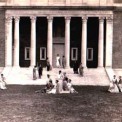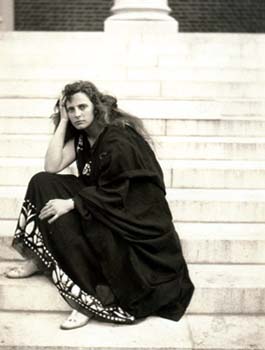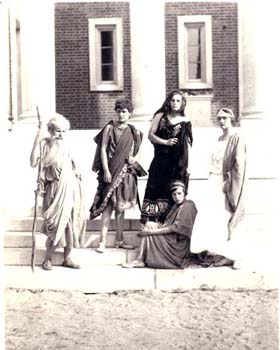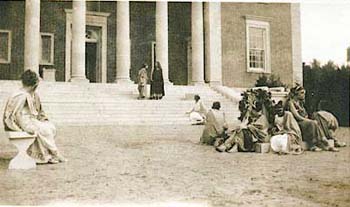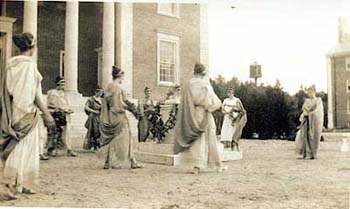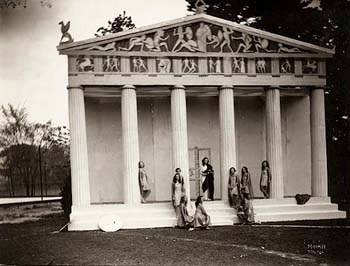Why Study Classics?
Why study Classics, when change and progress are all around us? Technology and scientific innovation are bringing us to places few could have ever imagined, while larger economic forces and cultural movements are reshaping our society. What good can the study of the ancient world do for those who live in this twenty-first century?
To state it most simply, Classics is good to think with.
Classics majors learn to analyze; they reason clearly and they write well.
They have a broad and synthetic view of the past, and this translates readily when they find themselves in any new situation.
When your four years of college are over and it is time to move into the professional or business worlds, most employers are going to care very little about your specific major. Employers tend to look for people who are smart and know how to learn new things. They want employees who have the ability to write, who can analyze the world around them, and who have a broad background knowledge.
Students in Classics fit the bill. We study art and philosophy as well as language; we write about religion and history as well as literature. Classics is not a narrow but a broad field, and it allows us to branch out in many ways.
The Wheaton Classics Department is a small but our office doors are open. We have interdisciplinary connections with colleagues in Art, Philosophy, Religion, and History; one of the Deans at Wheaton is an archaeologist.
If Classics is what you love, you will find that your pursuit of it is very satisfying during your college years and that it can open many doors thereafter. Wheaton alumnae and alumni have gone on to pursue careers in many fields, from teaching, to business, IT, theater, creative writing, museum work, library school, divinity school, and, of course, to further study in Classics.
Photo Gallery
When Wheaton’s Wallace Library was built, its front steps were designed to be a theater for Greek drama; the second-story porch over the main entrance was the Greek logeion, an elevated “speaking place” for actors. At the dedication of the Library in 1923 students staged a performance of Sophocles’ Electra.
